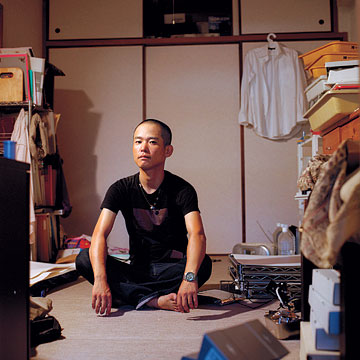
Kan Zenke, 34
Part-time work as a security guard helps Zenke support his love of photography. A newlywed, he plans to vote for the DPJ because it has promised benefits for young families
For other Japanese youth, the solution has been, simply, to opt out. Not that Kan Zenke, 34, is a slacker. "I want freedom," proclaims the Osaka resident, with a brio rarely found among a generation conditioned by years of economic disappointment to passively take whatever hand the job market deals them. As a college student, he saved $10,000 from his work as a day laborer and Toyota factory-line worker to take a round-the-world jaunt after graduation, visiting Pakistan and Guatemala, among other exotic locales. Eight months ago, he again escaped from what he calls the "slave-labor" conditions of a company job to pursue his love of art photography. He doesn't understand the passivity many older Japanese display, whether it comes to politics or career choice. "My parents say, 'There's nothing you can do,'" he complains. Zenke clearly disagrees.
It's not easy, however, to thrive outside the system. Zenke, who recently married, has been forced to work three days a week as a security guard at a baseball stadium to make ends meet. Part-time work has become a career cul-de-sac for many young Japanese. The percentage of non-full-time workers within the total workforce has increased to 11.2% in 2007 from 4.7% in 1985. Part-timers are the most vulnerable to budget cutbacks, and they don't qualify for most employment benefits. Still, they have jobs to go to. Roughly 640,000 young Japanese are relegated to so-called NEET status, the acronym standing for "not in employment, education or training."
Zenke, at least, is following his passion. Earlier this year, he exhibited photos taken in botanical gardens around the world at galleries in Tokyo and Osaka. But starving artists need to feed their children — and Zenke and his wife want to start a family within the next year. In part because the DPJ has promised free high school education and has promised monthly allowances to couples with kids, he plans to vote for the opposition this month. In the meantime, his freelance photo gigs are increasing, and he's confident in his art. "I've got nothing to lose," he says.
— with reporting by Yuki Oda / Tokyo